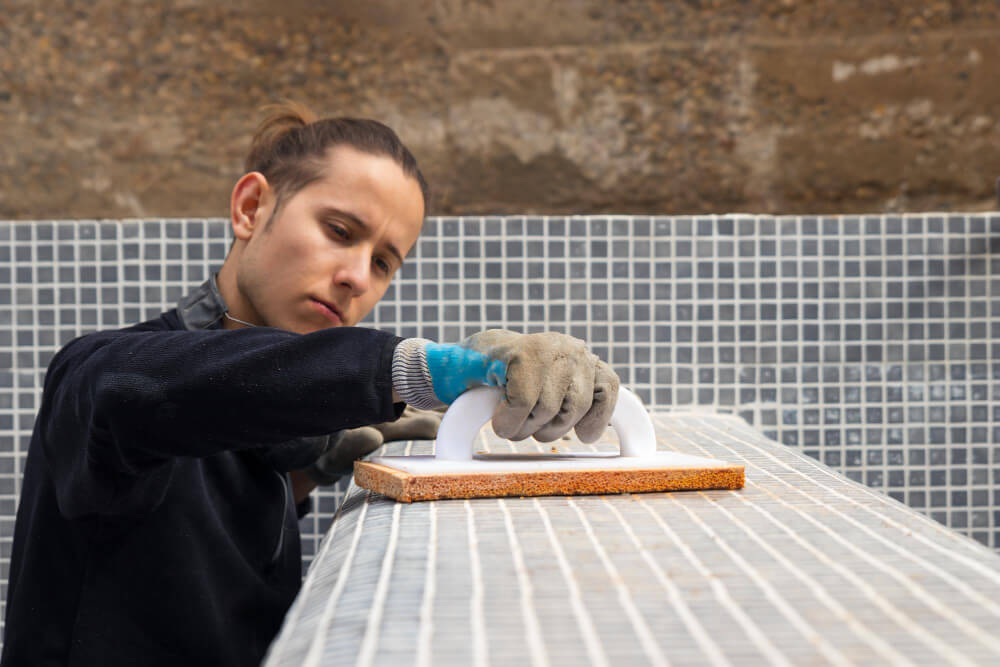DIY Tips for Small Repairs on Your Gunite Pool

A gunite pool offers long-lasting beauty, luxury, and strength—but like any outdoor structure, it needs regular maintenance and occasional touch-ups. Fortunately, many small gunite pool repairs can be tackled as DIY projects, saving you both time and money. Whether you’re dealing with a minor crack, stain, or a loose tile, staying proactive can prevent more serious damage and extend the life of your pool.
In this blog post, we’ll explore the most common small issues that gunite pool owners encounter, and provide detailed DIY repair tips to help you handle them with confidence.
🛠️ Why DIY Gunite Pool Repairs Matter
Catching and addressing issues early can significantly reduce long-term repair costs. DIY repairs are especially useful for:
Maintaining a smooth pool surface
Preventing stains from setting in
Fixing cosmetic or minor structural problems
Avoiding expensive service calls
Preserving property value
Learning how to take care of small issues empowers you as a pool owner and ensures that your investment remains in top shape year-round.
🔍 Common Small Gunite Pool Issues and How to Fix Them
1. Hairline Surface Cracks
Signs: Fine lines appearing on the plaster surface, especially near corners or steps.
Cause: These often form due to temperature fluctuations or minor ground movement.
DIY Fix:
Use a hydraulic cement or underwater pool repair epoxy.
Lower the water level just below the crack if needed.
Clean the area with a stiff brush or acid wash.
Apply the patching compound as directed, smoothing it with a trowel.
Allow appropriate curing time before refilling or swimming.
⚠️ Note: If the crack is wider than 1/8″, consult a professional. Deeper cracks could indicate structural issues.
2. Minor Stains and Discoloration
Signs: Yellow, brown, green, or black discoloration on the pool floor or walls.
Cause: These can result from algae, minerals (like iron or copper), or organic debris.
DIY Fix:
Use a stain identification kit to determine the type.
Organic stains: Apply granular chlorine directly.
Metal stains: Use ascorbic acid or a commercial metal remover.
Brush vigorously with a nylon pool brush.
Balance pool chemistry to prevent future staining.
✅ Pro Tip: Regular brushing and proper pH levels help prevent staining.
3. Loose or Missing Pool Tiles
Signs: Tiles falling off or appearing hollow when tapped.
Cause: Water infiltration or aging grout and adhesives.
DIY Fix:
Drain the pool water to expose the affected area.
Remove old grout and clean the substrate.
Use a pool-grade waterproof adhesive to reset the tile.
Grout with epoxy-based or waterproof pool grout.
Let cure for 24–48 hours before refilling.
📌 Always wear gloves and safety goggles when working with adhesives and grout.
4. Chipped or Flaking Plaster (Surface Pitting)
Signs: Rough or chalky patches on the pool floor or walls.
Cause: Imbalanced water chemistry, especially low calcium levels.
DIY Fix:
Light surface damage: Use a pool plaster patch kit.
Mix compound as directed and apply with a putty knife.
Smooth and feather the edges into the surrounding surface.
Cure time varies depending on the product.
⏳ Maintenance Tip: Resurface every 10–15 years to maintain comfort and aesthetics.
5. Faulty Underwater Lights
Signs: Lights not turning on or flickering.
Cause: Burned-out bulbs, water infiltration, or faulty wiring.
DIY Fix:
Turn off power at the breaker box.
Unscrew the light fixture from its niche and bring it to the pool deck.
Replace the bulb and gasket seal (critical to prevent leaks).
Reassemble and test after restoring power.
⚠️ Important: Always ensure the electricity is turned off. When in doubt, hire a licensed electrician.
🧰 Essential Tools for DIY Gunite Pool Repairs
Before you begin any DIY gunite pool repair, having the right tools makes a big difference. Keep these supplies handy:
Hydraulic cement or pool epoxy
Pool plaster patch kit
Tile adhesive and waterproof grout
Nylon or pumice cleaning brushes
Replacement light bulbs and gaskets
Skimmer net, vacuum, and pole brush
Pool water testing kit and balancing chemicals
💧 Regular Maintenance to Prevent Repairs
The best way to reduce DIY repairs is through consistent maintenance. Here’s a simple routine:
Test water 2–3 times weekly and balance pH, alkalinity, and chlorine levels.
Brush and vacuum your pool weekly.
Backwash filters as needed to improve water circulation.
Inspect tiles and plaster during each cleaning session.
Monitor water level to detect potential leaks early.
🌞 Preventative care saves you from bigger expenses later—and helps your pool look and feel new.
🚫 Repairs Best Left to Professionals
While many DIY gunite pool repairs are simple, some issues require expert intervention. Contact a pro if you notice:
Structural cracks in the concrete shell
Persistent leaks
Equipment failure (pump, heater, automation system)
Widespread surface erosion or peeling plaster
Electrical wiring problems
Trying to handle these without proper tools or expertise could worsen the problem or pose safety risks.
🧱 Extend the Life of Your Gunite Pool with DIY Repairs
Tackling small issues early can extend the lifespan of your pool by years. Many DIY gunite pool repairs can be done in a weekend and don’t require costly professional services. By combining hands-on maintenance with professional care when needed, you protect your investment and enjoy a pristine pool for decades.
Work with Harpeth Valley Hardscape for Major Repairs or Renovations
At Harpeth Valley Hardscape, we specialize in gunite pool construction, resurfacing, and renovation. If your pool needs more than just a patch, our expert team is ready to help. We offer everything from tile replacement and equipment upgrades to complete redesigns—always with attention to quality and detail.
🛠️ Need professional help or a pool assessment?
Fill out the form below to schedule your pool inspection or speak with a design expert today.



